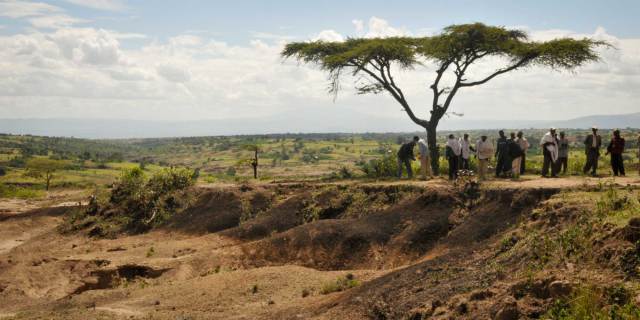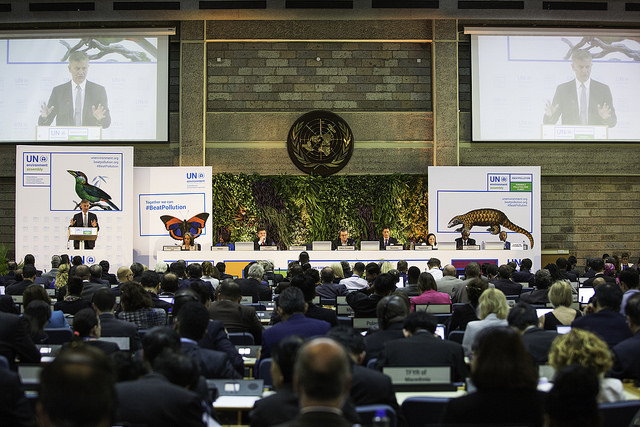
Cultural instigator Scott Goodson, President of Mauritius Ammenah Gurib Fakim, yogi and spiritual leader Sadhguru, and UN Environment Director General Erik Solheim are headlining an unprecedented gathering in Bonn, Germany of more than 45 organizations including the World Resources Institute (WRI), The World Bank, the Food and Agriculture Organization of the United Nations (FAO), and others dedicated to the urgent global imperative to preserve and restore natural resources—from peatlands in Indonesia to glaciers in the Peruvian Andes.
They’re coming together at the end of a year marked by mounting threats on land—under pressure from the growing global demand for commodities, the need to feed a burgeoning population, and an escalation in natural disasters. In 2017 alone, significant forest and peatland fires ripped through Indonesia, violent land rights protests rocked Brazil, destructive hurricanes leveled Caribbean islands and drastic food shortages created a crisis in East Africa.
Seeking to solve these and other land-based crises, the Global Landscapes Forum (GLF) will spotlight cutting-edge research and innovative projects across Africa, Asia, Latin America and the Pacific—leveraging everything from drones to traditional indigenous knowledge.
These include billion-dollar forest restoration projects in Latin America (Initiative 20×20) and Africa (AFR100); high-tech, real-time mapping and tracking tools that can monitor remote forests; and innovative solutions to the destruction of natural resources, such as the rebuilding of peatlands in Europe using sustainable building products.
Hosted and funded by the German government, the Global Landscapes Forum is the only event of its kind devoted to treating landscapes in a holistic manner. By connecting “unusual bedfellows,” the event seeks to break traditional silos to generate novel ideas and accelerate action to ensure land use and distribution is more resilient, equitable and productive.
The GLF is the largest science-based platform on sustainable land use bringing together world leaders, climate negotiators, policy makers, development practitioners, private sector representatives, scientists, civil society and the media. Since its inception in 2013, over 25,000 stakeholders from 3,000 organizations and 110 countries have engaged with the GLF. More than just an event, it is a movement aiming to impact one billion people in the next five years.












